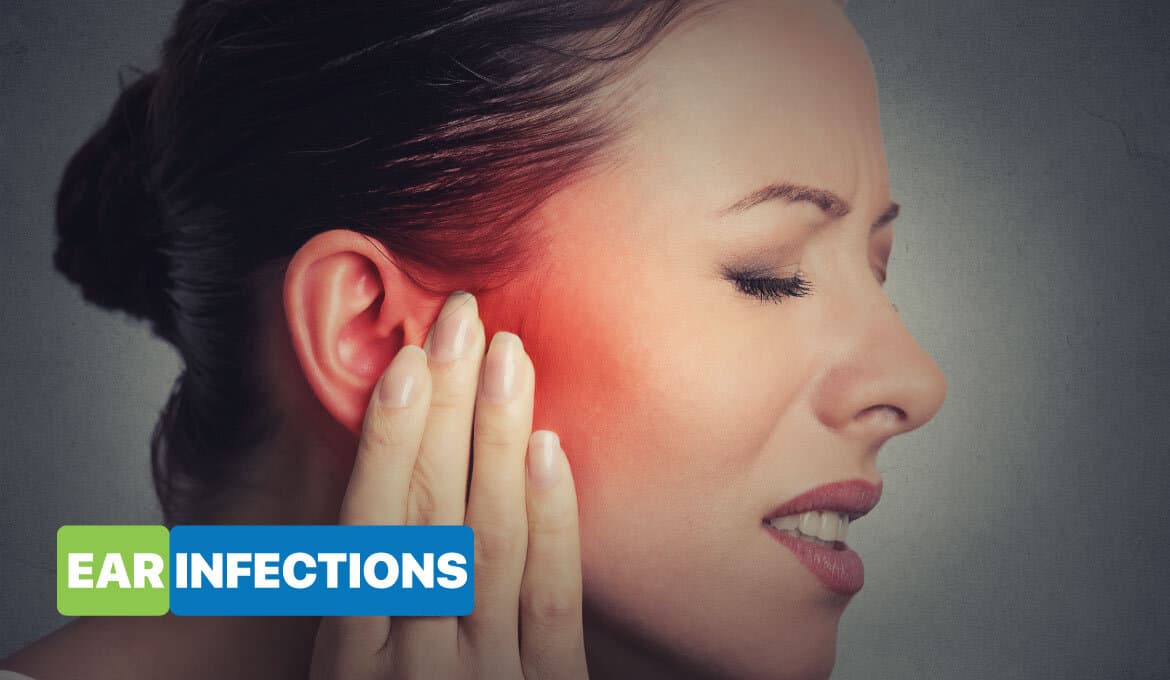
Have you experienced a slight headache while coughing? If yes, then it's called a cough headache.
Cough headaches might also happen when you sneeze, blow your nose, poop, bend over, or are stressed. It usually doesn’t cause any harm and goes away quickly.
If you feel concerned, it's good to consult your doctor as there might be other underlying health conditions that cant be treatable with early detection.
Different Types Of Headaches
Headaches are common, and there are different types of headaches. You might have heard of migraine and sinus headaches, often confused with headaches. These headaches have typical symptoms, so it is very challenging to differentiate between the two.
However, the types of headaches include:
a). Tension headache:
Tension headaches are the most common type of headache, and are caused due to tension in the muscles of your neck, face, and scalp.
This headache is caused by:
- Stress or Anxiety
- Missing meals
- Lack of sleep
- Anxiety or depression
b). Cluster headache:
A cluster headache is a severe headache. The cause for it is unknown. Cluster headaches occur at the same time of the day and over weeks or months. They can last between 15 minutes to 3 hours.
Symptoms of cluster headaches include:
- Pain in the eyes or behind the eyes
- Stuffy or runny nose
- Swelling in the face
- Redness in the eyes
- Feeling nauseous before headaches
c). Rare headaches:
Some rare headaches lead to facial pain. These include:
- Paroxysmal hemicrania
- Ice pick headaches
- Hemicrania continua
- Short-lasting, Unilateral, Neuralgiform headache attacks with Conjunctival injection and Tearing (SUNCT)
There are two types of cough headaches and these are discussed below.
What is a Primary headache?
Primary headaches occur suddenly and are generally harmless, and they are caused while coughing or sneezing and get resolved quickly.
Symptoms of primary cough headaches include:
- Sudden headache while coughing or after coughing
- A sharp or stabbing pain that might last for two hours.
- Headache that felt in the forehead or both sides of the head
- Headaches can range from mild to severe
What is a Secondary headache?
Secondary headaches are caused by any underlying health condition, they can be serious and require treatment.
Symptoms of secondary cough headache include:
- Long-lasting pain
- Unsteadiness or difficulty in balancing
- Fainting
- Dizziness
- Blurred vision
A cough headache occurs only when you cough or sneeze, other headaches are not cough headaches. If you already had a headache when you coughed or if you have a migraine headache, then you might feel more pain. Therefore, it is normal and it’s not a cough headache.
However, suppose you experience a cough or prolonged headaches for the first time. In that case, you should visit your doctor to identify whether there is any other problem that can be serious.
Causes of Cough Headaches
i). Primary headache causes
Primary headaches' causes are unknown since they come while coughing and get resolved quickly. They last anywhere from 30 minutes to two hours.
ii). Secondary headache causes
A secondary headache may be caused due to:
- An abnormal skull shape
- A faulty cerebellum (a part of the brain that controls the balance)
- Brain tumor
- Chiari malformation
- A weakness in the blood vessels of the brain
- Excess CSF (Cerebrospinal Fluid) buildup in the brain
Diagnosis for cough headaches
Generally, cough headaches, especially primary headaches, don't require diagnosis as they are not severe or harmful to health. However, a secondary cough headache can lead to extreme health conditions that must be detected and treated promptly to avoid risk.
Therefore, your healthcare provider may suggest some diagnosis depending on whether you have primary or secondary cough headaches.
The diagnosis includes:
Magnetic Resonance Imaging (MRI): Magnetic Resonance Imaging (MRI) is a type of scan done using strong magnetic fields and radio waves to produce a cross-sectional image of your head to identify any problems that are causing you cough or headache.
Computerized Tomography (CT scan): This test combines a series of X-ray units that rotate around the body and uses an automated process to create cross-sectional images. This gives deeper information than plain X-rays.
Lumbar Puncture (Spinal tap): During lumbar puncture, a needle is inserted into the spinal canal to collect cerebrospinal fluid to identify diseases in the central nervous system, including the brain and spine.
Treatment for cough headaches
Treatment varies depending on the type and severity of the cough headache
Primary cough headache treatment
Your doctor might suggest some preventive medications if you have a primary headache.
The preventive medicines include:
Indomethacin (Indocin):
Indomethacin is a nonsteroidal, anti-inflammatory drug used to reduce fever, pain, swelling, and stiffness caused by inflammation.
It slows the synthesis of prostaglandins primarily caused by cyclooxygenase enzymes responsible for inflammation, fever, and pain.
Propranolol (Inderal LA):
This drug treats anxiety, heart problems, and migraine. It relaxes the blood vessels and slows the heartbeat to improve the blood flow.
Acetazolamide:
This drug is consumed as a diuretic medicine (water pill). It works by limiting the amount of spinal fluid and reducing the pressure in the skull.
Alternative medicines that are used to treat primary cough headaches are:
- Methysergide
- Naproxen sodium (Aleve)
- Methylergonovine
- Intravenous dihydroergotamine (D.H.E.45) and
- Phenelzine (Nardil)
Secondary cough headache treatment
A secondary cough headache is treated with surgery. Preventive medicines usually don't help people with secondary cough headaches.
Risk factors of cough headaches differ from person to person, and the type and cause of the headache.
So, Are Primary Cough Headaches Dangerous?
In general, primary headaches triggered by coughing are unusual clinical symptoms. This headache occurs only while coughing, straining, or blowing your nose and heals quickly by itself. They generally do not cause any harm.
However, if the headache stays longer than an hour or a week it is advisable to consult your doctor as there might be underlying health conditions.
Conclusion
Headaches have various causes. Most headaches do not indicate a severe health condition, and they get better independently. Having an idea of your symptoms will help you and your doctor to distinguish between primary and secondary headaches and treat them accordingly.
If you are concerned about frequent headaches, it's advisable to seek medical help to avoid any risk.
FAQs
1. What causes a primary cough headache?
Ans: The actual cause of primary cough headaches is unknown, but it is caused by coughing, sneezing or bending over, or blowing the nose. Primary headaches are normal and harmless.
2. Can sinus problems cause cough headaches?
Ans: A sinus headache may worsen the pain if a person suffers from pressure and pain in the forehead. Such headaches are also associated with fever, cough, sore throat, and other cold symptoms.
3. How do I know if I have a primary or secondary cough headache?
Ans: Primary headaches come when you cough or sneeze and last for a few seconds, minutes, or two hours. At the same time, secondary headaches are considered severe and may indicate serious health conditions.
4. Can dehydration cause cough headaches?
Ans: Yes, insufficient water intake can also cause headaches. People who take less fluids tend to get headaches more often than those who stay hydrated. Therefore, take enough fluids and stay hydrated to avoid any risks.
5. Where is a sinus headache located?
Ans: Sinus occurs when the fluids build up in the air-filled pockets in the face. The sinus pain happens in the face, over the cheeks and forehead, or between or behind the eyes.
6. Is Sinus a serious problem?
Ans: Sinus problems are common, and they are not severe. They might have many causes, such as viruses, bacteria, nasal polyps, or allergies. You can treat sinuses at home by resting, taking counter-medications, and drinking lots of water.
Read Also:







